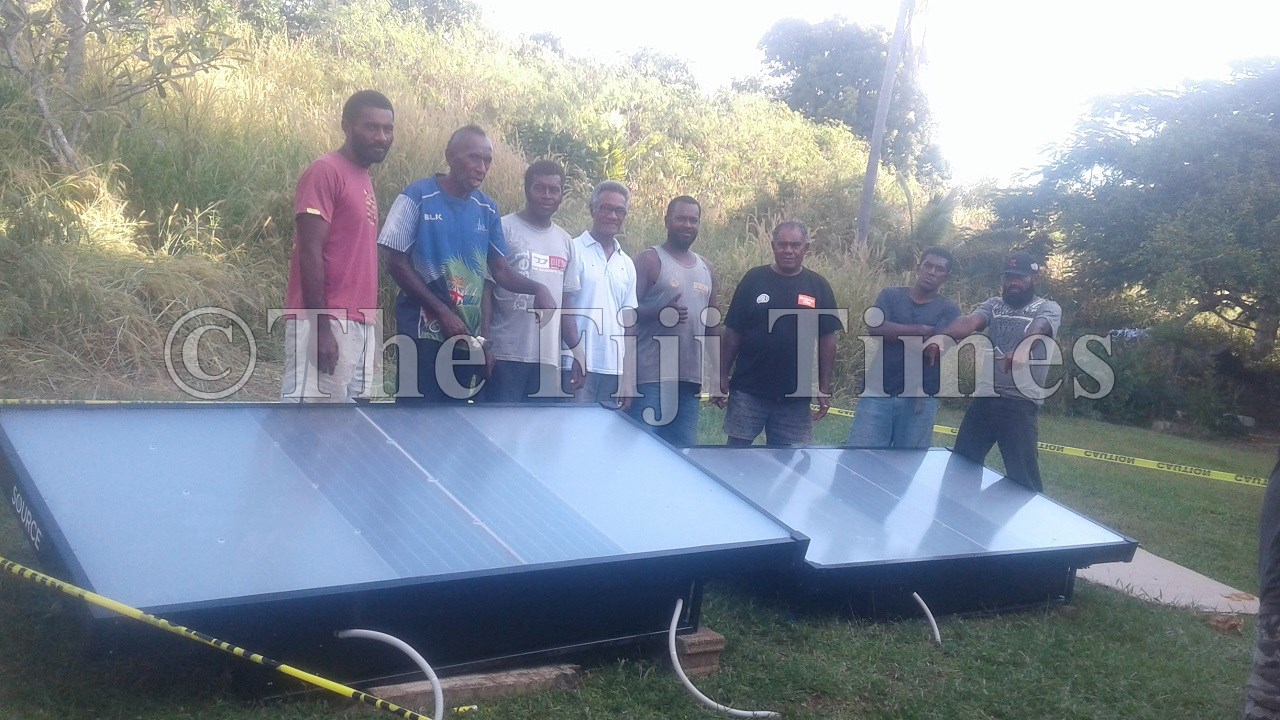WHEN Mollie Fong established Greenco in 2011, he did it to help local companies reduce their electricity bills and to also encourage the use of renewable energy.
In just under a decade, the Nadi-based company has gone from selling solar-powered products to installation, providing backup service and introducing state-of-the-art equipment that produce water out of thin air, powered by the sun.
One of his latest products —Elco and Torqeedo electric outboard engines — run on batteries charged by solar or grid power.
“We brought these in because the normal outboard engines are really fuel hungry and bad for the environment,” he said.
“One normal outboard engine produces the same amount of emissions as 34 cars on the road.
“When you compare this with the products we have brought in, the Elco and Torqeedo — they are the best option for a country like Fiji where we are so dependent on keeping our environment pristine because of tourism.”
Mr Fong said the growth of his business was linked to education and a real commitment by local firms and individuals to “go green”.
“We are now setting up solar panels to power homes, providing solar-powered lighting and power and solar-powered water production equipment to rural and maritime schools.
“What started as an idea to help businesses reduce their electricity bill has taken a life of its own and we are now helping individual homeowners realise they can save on their power and water bills and help the environment at the same time.”
Mr Fong said Greenco was the first company to introduce LED lights and solar-powered airconditioning units into the country.
“We brought in the two things that we thought, at the time, would reduce electricity bills.
“These were lights and renewable energy powered airconditioning units.”
Greenco has since expanded its renewable energy portfolio — the company now provides solar-powered outboard engines and portable fridges, coolers and morgues.
Mr Fong said many potential customers baulked at the cost of installing a solar power system that could power their home.
“You get what you pay for. “There are a lot of cheap systems on the market, but a lot of them can only power lights and maybe a television set.
“If you want a system that will power your whole house — you have to look at your consumption and the number and types of appliances you have.
“Fridges have to run 24 hours, and they consume the most energy in any home and you have to factor this into the number of appliances you want to power because this will determine the number of solar panels and batteries you will need to store the solar energy.
“Another aspect you have to look at, especially for businesses and homes in the central and eastern divisions, is the number of daylight hours available in one day.
“This will also have to be factored in to determine the number of solar panels and batteries a property will need.”
Mr Fong said Greenco were also dealers for hybrid systems — these used grid power to charge batteries — and switched to solar power when batteries were fully charged.
SCHOOLS
Apart from numerous residential installations, Greenco has also installed solar units at rural and maritime schools.
“Four schools in Bua — Kubulau, Lekutu District, Ratu Luke, Immaculate Conception College are benefiting from this.
“The environmental benefits for this are amazing — the Source Hydropanels do not require grid energy because they are powered by the sun and they reduce the amount of plastic bottles that get discarded because you need to bring your own bottle to refill.
“And they do not require any raw material — just the air.
“The product has been so popular and successful, we have installed units at Mana Island Resort, Marriott Momi Bay, Kokomo, Westin Denarau and Outrigger Fiji Beach Resort.
“The Fiji National University has also taken a couple of units.”
CORPORATE SOCIAL RESPONSIBILITY
Mr Fong said apart from selling products which use renewable energy, his company also believes in being good corporate citizens.
“We donated two Source Hydropanels to Galoa District School in Bua and Navatubalavu Early Childhood Centre in Navosa.
“Just seeing the smiles on the children’s faces was amazing — and just knowing they have access to water created out of air and running on solar power is a
huge plus.”
Going green is a lifestyle choice, it is about making a real commitment to lower your carbon footprint by deriving energy from a renewable source and using appliances that draw energy from renewable sources.
“The original outlay is not cheap but in the long term, it will save you dollars and put a smile on your face — because you are making a conscious effort to
reduce the use of fossil fuel and energy sapping products.”
Anyone interested in solarpowered airconditioning, solar power for home, office or business, electric outboard motors or solar powered coolers and morgues should contact greencofiji@gmail.com or mollie@greencofiji.com



